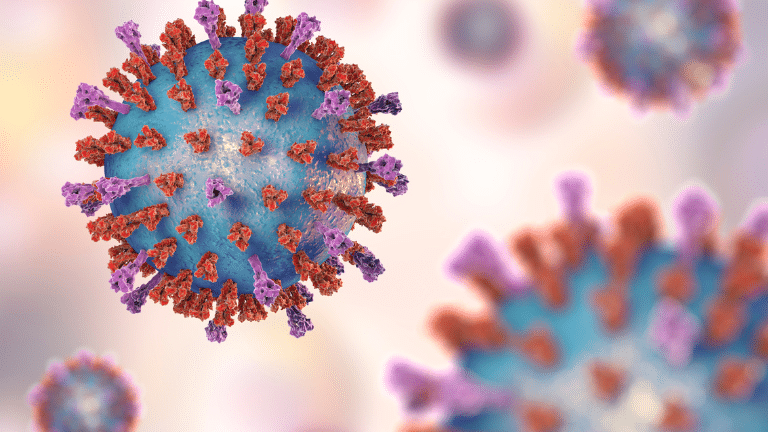
What is RSV?
Respiratory Syncytial Virus (RSV) was first identified in 1956 during an outbreak that affected laboratory chimpanzees. It was originally named ‘Chimpanzee coryza agent’ but when researchers discovered that it infected human populations as well, it was renamed RSV.
RSV is quite closely related to measles and mumps viruses but is usually less severe, with symptoms similar to a bad cold. It is spread through coughing and sneezing and can hang around on surfaces for several hours. It is found all over the world, with most cases occurring in winter.
What are the risks?
Healthy adults usually have fairly mild symptoms, but an RSV infection can be very serious in young children and older people. In babies and toddlers, breathing can be so badly affected that they need oxygen treatment in hospital.
Globally, RSV is estimated to cause one in 50 deaths in children under five. In over 65s, at least 300,000 people are admitted to hospital with an RSV infection each year, with around four per cent of them dying from associated complications.
When was the vaccine introduced?
Professor Josh Davis from HMRI’s Infection Research Program says, “Arexvy (one brand of RSV vaccine marketed by Glaxo Smith Kline) was registered for use in Australia (by the TGA) for adults over age 60 from January 2024. Abrysvo (another brand, marketed by Pfizer) was also approved, in March 2024, for use in infants under six months of age and pregnant women, as well as adults over 60 years of age.”
Why was the vaccine introduced?
In a clinical trial involving almost 25,000 volunteers, half were given Arexvy and half a placebo and they were all followed up for at least six months. The vaccine gave 83% protection against lower respiratory tract disease caused by RSV.
There are two forms of RSV, type A and B. The vaccine worked equally well against both types.
Who should get it?
RSV vaccination is recommended for:
What about infants and children?
From 3rd February 2025, the vaccine Abrysvo is available for use in Australia in eligible pregnant women as a protective measure for their babies in their first 6 months of life.
An immunisation called Beyfortus (nirsevimab), a monoclonal antibody has been approved for babies under 12 months of age who are at the highest risk of severe diseases. It is a passive immunisation that provides antibodies directly to the infant for immediate protection.
Is it free or do you need to pay for it?
Professor Davis says, “For people aged over 60, neither of the vaccines are funded yet under the PBS or any State or National vaccination programs – so it is only available on a private prescription, which means the patient has to pay for it. Currently the list price for Arexvy is $280 per dose. Only one dose is needed.
“In the meantime, if you are in one the above risk groups and you can afford it, it would be worth getting vaccinated ASAP before winter sets in. This won’t stop you getting influenza or COVID – they are separate vaccines. But the Big Three respiratory viruses (the ones that cause most of the severe illness and death) are Flu, COVID and RSV – now that we have vaccines for all three (and once the RSV vaccine is funded), this will likely have a large benefit over the coming winters,” he says.
As of 3rd February 2025, the vaccine Abrysvo is available for eligible pregnant women for free, funded by the National Immunisation Program (NIP).
For more information visit NSW Health Information Sheet
Please this information is most relevant to New South Wales residents. State and Territory information may vary.
This article has been updated on 3rd February 2025 as a result of updated information from the Australian Government Department of Health and Aged Care.
HMRI would like to acknowledge the Traditional Custodians of the land on which we work and live, the Awabakal and Worimi peoples, and pay our respects to Elders past and present. We recognise and respect their cultural heritage and beliefs and their continued connection to their land.
Hunter Medical Research Institute
We’re taking healthy further.
Locked Bag 1000
New Lambton
NSW, Australia, 2305


This site is protected by reCAPTCHA and the Google Privacy Policy and Terms of Service apply.
Copyright © 2024 Hunter Medical Research Institute | ABN: 27 081 436 919
Site by Marlin Communications
